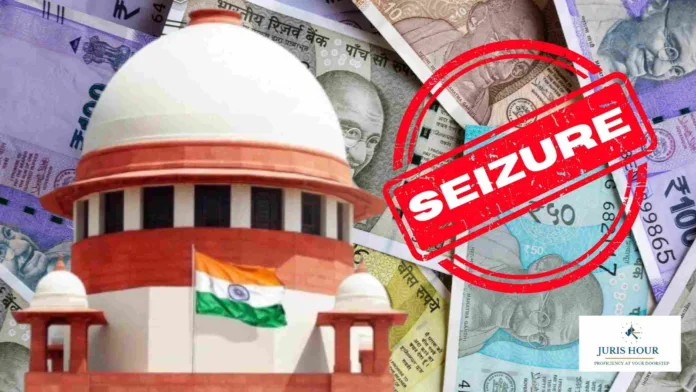The Supreme Court of India has dismissed the Department’s review petition challenging the Delhi High Court’s ruling that declared the seizure of cash from a trader’s residence as illegal.
A bench headed by Chief Justice B.R. Gavai and Justice Augustine George Masih upheld the High Court’s interpretation that Section 67 of the Central Goods and Services Tax (CGST) Act does not empower tax authorities to seize valuable assets merely on the ground that they are “unaccounted.”
Background of the Case
The dispute arose from a January 2020 search conducted by Central Tax officers at the residence of a Delhi-based trader engaged in the business of non-ferrous metals. During the search, officers seized two silver bars weighing 29.5 kg and 14.5 kg respectively, cash amounting to ₹7 lakh, multiple mobile phones, cheque books, and certain documents. The trader was arrested but later released on bail.
The Revenue alleged that the assets were linked to fake or “goodless” invoices and that the seized items represented unaccounted proceeds. However, no specific show cause notice referencing these items was issued within the statutory six-month period as mandated by the CGST Act.
On August 17, 2023, a division bench of Justice Vibhu Bakhru and Justice Purushaindra Kumar Kaurav of the Delhi High Court ruled in favour of the trader. The court held that silver bars qualify as “goods” under Section 2(52) of the CGST Act, whereas currency falls under “money,” excluded from the definition of goods. Section 67 empowers officers to seize goods only if they are liable to confiscation due to suspected tax evasion. The term “things” in Section 67(2) must be interpreted ejusdem generis with “documents” and “books,” meaning only items containing information useful to proceedings (like electronic devices) may be seized, not valuable assets per se. The CGST Act does not permit the seizure of unaccounted wealth unless it is directly relevant to proceedings under the Act. Recovery of unaccounted income falls under the Income Tax regime, not GST.
The court directed the department to return the seized cash, silver, and other items, clarifying that this would not preclude authorities from pursuing any lawful tax demand separately.
Case Details
Case Title: Commissioner Of CGST Versus Deepak Khandelwal
Case No.: SPECIAL LEAVE PETITION© NO. 18536 OF 2024
Date: August 19, 2025
Read More: Why CESTAT Rejected Affidavit as Additional Evidence?

